The Quotable HeschelAbraham Joshua Heschel For Rabbi Abraham Joshua Heschel, prayer does not fill a psychological or societal need. Rather, it “constitutes the very essence of man.” 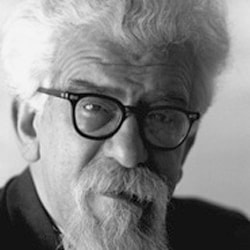 The problem is not how to revitalize prayer; the problem is how to revitalize ourselves. Let us begin to cultivate those thoughts and virtues without which our worship becomes, of necessity, a prayer for the dead—for ideas which are dead to our hearts. We must not surrender to the power of platitudes. If our rational methods are deficient and too weak to plumb the depth of faith, let us go into stillness and wait for the age in which reason will learn to appreciate the spirit rather than accept standardized notions that stifle the mind and stultify the soul. We must not take too seriously phrases or ideas which the history of human thought must have meant in jest, as for example, that prayer is "a symbol of ideas and values," "a tendency to idealize the world," "an act of the appreciation of the self." There was a time when God became so distant that we were almost ready to deny Him, had psychologists or sociologists not been willing to permit us to believe in Him. And how grateful some of us were when told ex cathedra that prayer is not totally irrelevant because it does satisfy an emotional need. To Judaism the purpose of prayer is not to satisfy an emotional need. Prayer is not a need but an ontological necessity, an act that constitutes the very essence of man. He who has never prayed is not fully human. Ontology, not psychology or sociology, explains prayer. The dignity of man consists not in his ability to make tools, machines, guns, but primarily in his being endowed with the gift of addressing God. It is this gift which should be a part of the definition of man. Man's Quest for God by Abraham Joshua Heschel New York: Charles Scribner's Sons, 1954 pp. 77
1 Comment
The Quotable HeschelAbraham Joshua Heschel “The essence of prayer,” writes Abraham Joshua Heschel, “is agada, inwardness.” Yet, “it would be a tragic failure not to appreciate what the spirit of halacha (Jewish law) does for it.” 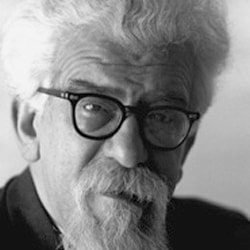 In reality, however, the element of regularity has often gained the upper hand over the element of spontaneity. Prayer has become lip service, an obligation to be discharged, something to get over with. "This people draw near, with their mouth and with their lips do honor Me, but have removed their heart far for Me and their fear of Me is a commandment of Me learned by rote" (Isaiah 29:13). The primacy of inwardness in prayer may be explained by a parable. There was once a king who commanded his servants to make him savory food such as he loved. So they brought him the dish and he ate. And even though the preparation of the dish required many different kinds of work such as cutting wood, drawing water, slaughtering animals, kindling fire, cleaning pots and pans, and cooking, nevertheless the king only commanded them concerning the savory food. And if it would have been possible to have produced the morsel without these steps, his commandment would still have been considered fulfilled. For the king was not interested in the wood or the water and he was not concerned with the way the food is made. Now imagine what would happen if, when the time to eat arrived, the servants were to come in carrying pots and pans. And when the king asked, "What are these?" they were to say to him: "You have told us to make savory food for you. Here, sir, is the equipment with which they are made." Indeed would not the King burn with anger and would he not rightly say to them: "I commanded you only to bring the savory food. Did I ask you for pots and pans?”* And so it is with words of prayer when the heart is absent. Prayer becomes trivial when ceasing to be an act in the soul. The essence of prayer is agada, inwardness. Yet it would be a tragic failure not to appreciate what the spirit of halacha does for it, raising it from the level of an individual act to that of an eternal intercourse between the people Israel and God; from the level of an occasional experience to that of a permanent covenant. It is through halacha that we belong to God not occasionally, intermittently, but essentially, continually. Regularity of prayer is an expression of my belonging to an order, to the covenant between God and Israel, which remains valid regardless of whether I am conscious of it or not. How grateful I am to God that there is a duty to worship, a law to remind my distraught mind that it is time to think of God, time to disregard my ego for at least a moment! It is such happiness to belong to an order of the divine will. I am not always in the mood to pray. I do not always have the vision and the strength to say a word in the presence of God. But when I am weak, it is the law that gives me strength; when my vision is dim, it is duty that gives me insight. *Rabbi Menahem Lonzano, Derech Hayim, Lember, 1931, p. 84 Man's Quest for God by Abraham Joshua Heschel New York: Charles Scribner's Sons, 1954 pp. 67-8. The Quotable HeschelAbraham Joshua Heschel “The essence of living as a human being is being challenged, being tempted, being called,” writes Abraham Joshua Heschel. Prayer, he continues, is a necessary response. 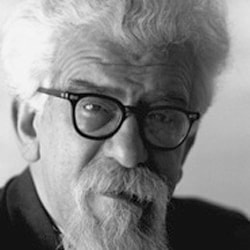 Choose life!” is the great legacy of the Hebrew Bible, and the cult of life is affirmed in contemporary theology. However, life is not a thing, static and final. Life means living, and in living you have to choose a road, direction, goals. Pragmatists who believe that life itself can provide us with the criteria for truth overlook the fact that forces of suicide and destruction are also inherent in life. The essence of living as a human being is being challenged, being tempted, being called. We pray for wisdom, for laws of knowing how to respond to our being challenged. Living is not enough by itself. Just to be is a blessing. Just to live is holy. And yet, being alive is no answer to the problems of living. To be or not to be is not the question. The vital question is: how to be and how not to be? The tendency to forget this vital question is the tragic disease of contemporary man, a disease that may prove fatal, that may end in disaster. To pray is to reflect passionately the perpetual urgency of this vital question. Quoted from “On Prayer” in Understanding Jewish Prayer by Jakob J. Petuchowski New York: Ktav Publishing House, 1972, p. 78. The Quotable HeschelAbraham Joshua Heschel Prayer, writes Abraham Joshua Heschel, should not be seen as a "strategem for occasional use," but "rather like an established residence for the innermost self." 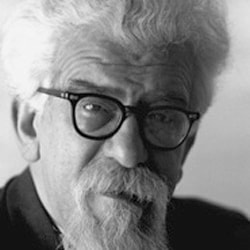 Prayer is not a stratagem for occasional use, a refuge to resort to now and then. It is rather like an established residence for the innermost self. All things have a home, the bird has a nest, the fox has a hole, the bee has a hive. A soul without prayer is a soul without a home. Weary, sobbing, the soul, after roaming through a world festered with aimlessness, falsehoods and absurdities, seeks a moment in which to gather up its scattered life, in which to divest itself of enforced pretensions and camouflage, in which to simplify complexities, in which to call for help without being a coward. Such a home is prayer. Continuity, permanence, intimacy, authenticity, earnestness are its attributes. For the soul, home is where prayer is. Quoted from "On Prayer” in Understanding Jewish Prayer by Jakob J. Petuchowski New York: Ktav Publishing House, 1972, p. 70. The Quotable HeschelAbraham Joshua Heschel Abraham Joshua Heschel on the relationship between prayer and prayer book, and the difference between asking how to pray, and what to pray. 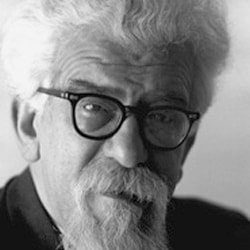 ...To Kabbalah and Hasidism the primary problem was how to pray; to the modern movements, the primary problem was what to say. What has Hasidism accomplished? It has inspired worship in a vast number of Jews. What have the moderns accomplished? They have inspired the publication of a vast number of prayer books. It is important for the rabbis to clarify their goal. Is it to make a contribution to bibliography or to endow our people with a sense of kavanah. There have been numerous Prayer Book Commissions. Why is there no Prayer Commission? Modern Jews suffer from a neurosis which I should like to call the Siddur (prayer book) complex. True, the text of the prayer book presents difficulties to many people. But the crisis of prayer is not a problem of the text. It is a problem of the soul. The Siddur must not be used as a scapegoat. A revision of the prayer book will not solve the crisis of prayer. What we need is a revision of the soul, a new heart rather than a new text. Man's Quest for God by Abraham Joshua Heschel New York: Charles Scribner's Sons, p. 83. |
Welcome to the Making Prayer Real eJournal! Edited by Rabbi Mike Comins and sponsored
by the Making Prayer Real Curriculum, the eJournal offers wisdom, tools, and resources on the art of Jewish prayer. Explore the eJournal by clicking on the topics below. Please share these resources with your friends!
Categories
All
|
 RSS Feed
RSS Feed